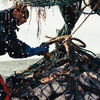Processing Your Payment
Please do not leave this page until complete. This can take a few moments.
- News
-
Editions
-
- Lists
-
Viewpoints
-
Our Events
-
Event Info
- Business Leaders of the Year Reception 2025
- Women's Leadership Forum 2025
- On the Road with Mainebiz in Bethel
- Health Care Forum 2025
- On The Road with Mainebiz in Greenville
- On The Road with Mainebiz in Waterville
- Small Business Forum 2025
- Outstanding Women in Business Reception 2025
- On The Road with Mainebiz in Bath
- 60 Ideas in 60 Minutes Portland 2025
- 40 Under 40 Awards Reception 2025
- On The Road with Mainebiz in Lewiston / Auburn
- 60 Ideas in 60 Minutes Bangor 2025
Award Honorees
- 2025 Business Leaders of the Year
- 2024 Women to Watch Honorees
- 2024 Business Leaders of the Year
- 2023 NextUp: 40 Under 40 Honorees
- 2023 Women to Watch Honorees
- 2023 Business Leaders of the Year
- 2022 NextUp: 40 Under 40 Honorees
- 2022 Women to Watch Honorees
- 2022 Business Leaders of the Year
-
-
Calendar
-
Biz Marketplace
- News
- Editions
- Lists
- Viewpoints
-
Our Events
Event Info
- View all Events
- Business Leaders of the Year Reception 2025
- Women's Leadership Forum 2025
- On the Road with Mainebiz in Bethel
- Health Care Forum 2025
- On The Road with Mainebiz in Greenville
- + More
- On The Road with Mainebiz in Waterville
- Small Business Forum 2025
- Outstanding Women in Business Reception 2025
- On The Road with Mainebiz in Bath
- 60 Ideas in 60 Minutes Portland 2025
- 40 Under 40 Awards Reception 2025
- On The Road with Mainebiz in Lewiston / Auburn
- 60 Ideas in 60 Minutes Bangor 2025
- - Less
Award Honorees
- 2025 Business Leaders of the Year
- 2024 Women to Watch Honorees
- 2024 Business Leaders of the Year
- 2023 NextUp: 40 Under 40 Honorees
- 2023 Women to Watch Honorees
- 2023 Business Leaders of the Year
- + More
- 2022 NextUp: 40 Under 40 Honorees
- 2022 Women to Watch Honorees
- 2022 Business Leaders of the Year
- Nomination Forms
- Calendar
- Biz Marketplace
New Maine blueberry commission director charts new marketing direction
 Courtesy / Wild Blueberry Commission of Maine
Eric Venturini, the incoming executive director at the Wild Blueberry Commission of Maine, envisions a renewed marketing campaign to get more product in front of consumers.
Courtesy / Wild Blueberry Commission of Maine
Eric Venturini, the incoming executive director at the Wild Blueberry Commission of Maine, envisions a renewed marketing campaign to get more product in front of consumers.
Over the past five years, Maine’s wild blueberry industry has experienced low pricing that doesn’t even meet production costs.
The trend has put growers in crisis mode.
“The industry has been bleeding growers and fields are going unmanaged and unharvested,” Eric Venturini, the incoming executive director at the Wild Blueberry Commission of Maine in Orono, told Mainebiz.
Among his goals, Venturini envisions a marketing campaign that gets more wild blueberries in front of consumers and tells the story of Maine’s industry.
“One of my goals will be to try to get Maine frozen wild blueberries in grocery stores across the Northeast,” he said. “I want frozen blueberries, representing a diversity of Maine farms, not just on the bottom shelves shoved in the back, but right in front, featuring the story of Maine wild blueberries. I don’t think we’ve done a good enough job of telling this fascinating story.”
Venturini will begin as the new executive director on Feb. 10. An alumnus of the University of Maine, most of his work for the past eight years has focused on wild blueberries and pollinators.
He was an assistant research scientist at UMaine and most recently a “pollinator conservationist" with the Xerces Society for Invertebrate Conservation and the U.S. Department of Agriculture’s Natural Resources Conservation Service. For his work in this field, last fall he was honored with the Abram W. Harris Award, presented by the University of Maine Foundation to celebrate his service and leadership.
Venturini cited rising costs of production and shrinking price per pound as major problems plaguing the industry. To produce a pound of blueberries costs 60 to 70 cents.
In 2012, farmers were just above the break-even level, receiving 76 cents per pound. In 2016, they were getting 27 cents a pound. For 2017, some growers received 35 cents.
By 2019, growers drastically reduced their harvest, and some left the business altogether.
Looking forward, Venturini said, expanded marketing can not only promote the health benefits of wild blueberries but tell their story as a regional specialty crop that has grown in Maine for thousands of years, originally managed and harvested by Native Americans. That includes some fields that are still in production today, he added.
Maine is the only state in the U.S. that grows smaller, wild blueberries on a commercial scale. Most are sold in a frozen form to extend their shelf life. Fresh blueberries in stores are more typically the larger, cultivated blueberries, which are grown worldwide.
“Maine wild blueberries have a deep culture history and are of vital economic importance in the state,” Venturini said.









1 Comments